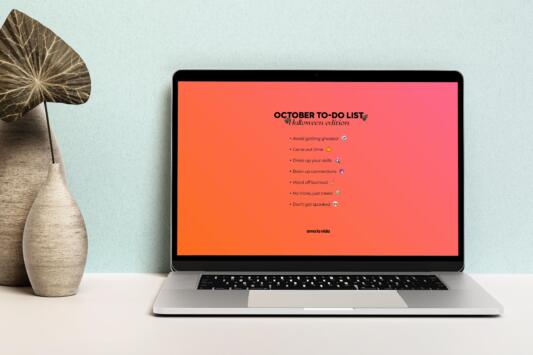How to Recover From People Pleasing
Achieving Goals, Confidence, Kindness, Life Coaching, Mental Health, Mindset & Mindfulness, Overcoming Fear, Reducing Stress

I am a recovering people-pleaser. There was a time in my life when I was afraid to say no because I wanted everyone to like me. I avoided conflict to a fault. I didn’t speak up for myself. I subscribed to this toxic mindset because I saw this type of behavior equal success. Over the years, I’ve met countless people-pleasers just like me who have come to me for coaching. Over time, people-pleasing became the default for them. When discussing their reluctance to change often they’d say things like, “I just want to be a good person and say yes,” or “I want them to like me,” or “I have to say yes because I don’t want to hurt their feelings.” This unhealthy behavior over time wears on People-pleasers. Consequently, people take advantage of this type of behavior. Over time, through this repeated behavior, people-pleasers realize that they aren’t pleasing anyone at all. While people-pleasing can be a hard habit to break, with some good coaching and identifying the right tools that are going to support you, you can recover from this toxic mindset.
What is people-pleasing?
At the core, people-pleasing means putting someone else’s needs before your own. People-pleasers are naturally in touch with the needs of others and are agreeable, helpful, and kind. Helpfulness and kindness are generally positive traits we want to see in other human beings, but taking it too far has its pitfalls. People-pleasers are known for doing whatever it takes to make others happy. Going too far to please others can leave one feeling emotionally drained, stressed, and anxious. As a result, people-pleasers may struggle with self-advocacy, which can lead to harmful patterns of self-neglect and self- sabotage.
The Risks of People-pleasing:
We can’t talk about how to overcome people-pleasing until we fully understand the risks. While it might seem harmless to be a people-pleaser, overtime this behavior can have damaging consequences. It can lead to serious mental and physical health risks.
- Self Care: People-pleasers rarely prioritize their self-care. Because they put others first, they spend less time on the things that we all need as humans to be our best. Because they spend less time relaxing, exercising and nourishing themselves, as a result they are more prone to health problems.
- Overcommitment: By saying yes all the time, people-pleaser inherently overcommit. With less time, people-pleasers can develop stress and anxiety. This can lead to less energy and sometimes depression.
- Resentment: Because people-pleasers feel like they can never say no, they can hold resentment. Over time this can be damaging to their relationships.
- Exploitation: With no limits to what they say yes to, people-pleasers allow others to take advantage of them. The worst part is that there are people who will realize that people-pleasers are targets because they don’t say no and take advantage of them.
The Signs You Might Be A People-pleaser:
There are several signs that you might be a people-pleaser. In order to know how to recover from people-pleasing it’s important to answer these questions. Do you…
- have a hard time saying “no”
- often find yourself worried about what others will think
- find yourself apologizing often?
- pretend to agree even if deep down you have a different opinion?
- feel ashamed or guilty if you have to say “no?”
- worry that if you say no people won’t like you or they’ll think poorly of you?
- find yourself taking the blame even when it isn’t your fault?
- neglect your needs to do things for others?
If you answered yes to most of these questions, chances are you suffer from people-pleasing.
Learning How to Say No
Putting an end to people-pleasing requires us to learn how to say No. There are several reasons why we must learn to say no:
- You’ll have more time for the things that are important to you
- You’ll have more time for the people who are most important to you
- Saying no to the things you don’t want to do will free up time for you to say yes to the things you actually want to do
- Your ability to deliver exceptional output will increase when you aren’t spread so thin.
- With fewer items clouding your mind, your mental wellbeing will inevitably improve.
Now you know why, it’s important to learn how to say no. Here are a few tips:
- Do a bit of explaining. Explain the predicament you’re in. It might be as simple as you’re on vacation or have other plans and these are good enough reasons.
- Be grateful for the opportunity, but kindly refuse. I love this strategy because it demonstrates healthy boundaries while also respecting the other person.
- Establish a blanket policy that applies to everyone. This could sound like, “I’m not doing social events on weekdays until I’m down with my Master’s program,” or “I’ll have to pass. I’m cutting back on weekday drinks.”
- Blame your calendar. This can sound like, “I have to check my schedule and get back to you.” This is my favorite way to say no because it gives you space to pause and reflect and see if it is a decision that truly serves you.
- No is a full sentence. You don’t have to explain your reasoning.
7 Tips to Recover From People-Pleasing
While saying no is a critical step in healing from people-pleasing, there are a number of other steps you can take to recover. These steps will help you learn how to find a healthy balance in helping others without sacrificing your own needs.
1. Establish Boundaries
In order to recover from people-pleasing it’s important to know your limits and communicate those limits. Boundaries are for us. Be clear and specific about what you are willing to say yes to. If it feels like someone is asking too much, let them know it’s beyond your limits of what you are willing to do and say no. We have a great resource on how to establish boundaries which can be found here.
2. Small Steps
For people-pleasers these behavioral changes will feel big because they are. You have to retrain your conscious response pattern while also teaching those around you to honor your boundaries. Because of the complexity, it can be helpful to start small. That might sound like practicing saying no to smaller requests or challenging yourself to ask for something small that you need. Every time you take a small step away from your tendency to please, you’ll gain confidence.
3. Positive Self-Talk
This is one of my favorite tools in building confidence, and can be applied to people-pleasers. If you start to feel overwhelmed or tempted to say yes when you really mean no, remind yourself that you deserve to have time for yourself. You deserve joy. You deserve to spend time and energy on the things that get you closer to your goals.
4. Set goals
Name your priorities. Where do you want to spend your time? What goals are you trying to accomplish? Who do you want to spend time with? If something or someone is depleting your energy go back to your boundaries.
5. Pause
Similar to the notion of “blaming your calendar,” when someone asks for a favor, tell them you will think about it and get back to them. Saying yes without pausing can lead you to feeling obligated and overcommitted. By giving yourself space to respond you can decide if it’s something that you really want to do. Furthermore, research shows that a pause between making a choice increases-decision making accuracy. Ask yourself, “Is this something I really want to do and if I say yes how stressed will I be?”
6. Reciprocity
It’s important to remember that strong, healthy relationships involve reciprocity. If you’re the one always giving and the other person is taking, that is no way to live. Even if you truly enjoy pleasing the other person, it’s important to remember that relationships are about give and take and they should give you something in return.
7. Help
You don’t have to give up being helpful and kind and you don’t have to say no to everything for the sake of saying no. The key is to understand your intentions. Don’t help only because you want approval. Keep doing kind things, but do it on your own terms. It will demonstrate greater authenticity on your behalf and you’ll be able to live a more congruent life.
None of us are perfect. If your people-pleasing is standing in the way of your own happiness, it’s crucial that you set boundaries and take back your time. You’re human. You can’t possibly please everyone.
Working with an Ama La Vida certified life coach can be a helpful next step to help hold you accountable to your goals and establish your boundaries. You can do this! Get matched with a certified life coach today.


